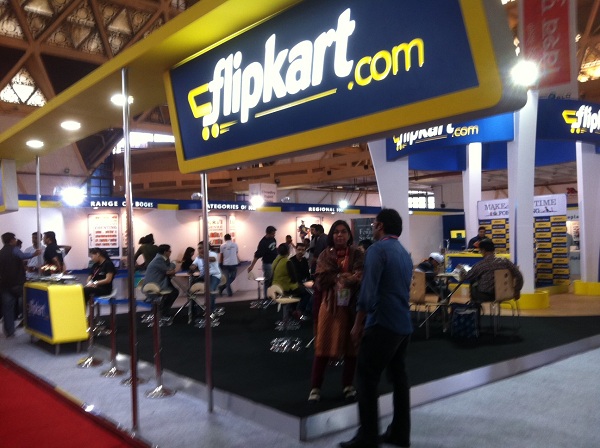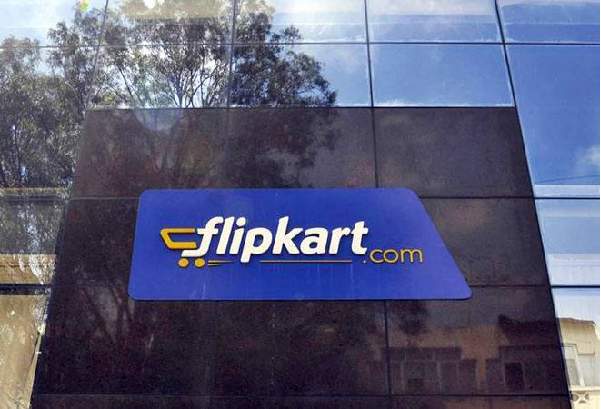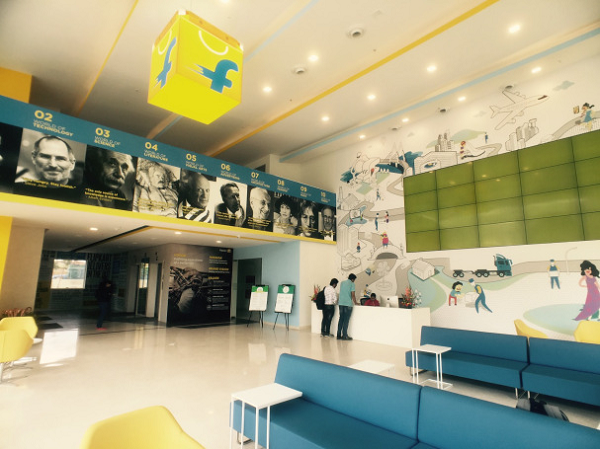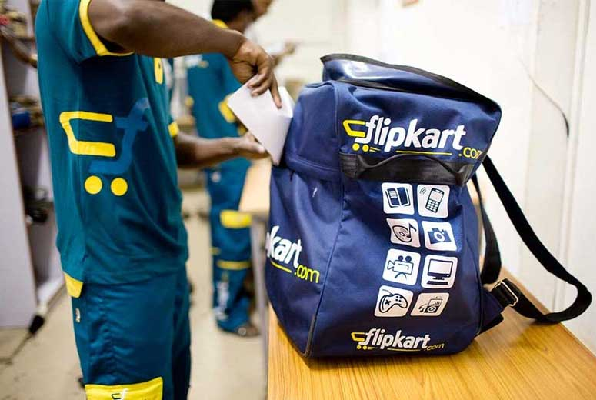
by Editor | May 25, 2021 | Branding, Business, Emerging Businesses, Large Enterprise, Marketing Basics, Markets, Networking, Online Marketing, Sales, Social Media, Technology
 New Delhi : Fashion is one of the biggest categories which will drive more than 60 per cent of all sales during the Big Billion Days (BBD) sale at Flipkart, says an official from the e-commerce platform.
New Delhi : Fashion is one of the biggest categories which will drive more than 60 per cent of all sales during the Big Billion Days (BBD) sale at Flipkart, says an official from the e-commerce platform.
The platform expects a 17-time jump in business in the fashion segment on the opening day of Big Billion Days (BBD) compared to non-sale days. Over one crore styles will be on sale with five times more styles on deep discounts from last BBD to cater to over 60 per cent of Flipkart’s overall shoppers — who will shop across fashion categories on the platform
“Over the years, Big Billion Days sale has emerged as the name synonymous with festive shopping in the country, bringing more and more Indians to shop online. Fashion is one of the biggest categories which will drive more than 60 per cent of all sales during this event,” Rishi Vasudeva, Head of Fashion & Lifestyle at Flipkart, told IANS.
“In a run up to festive season, Flipkart Fashion has significantly scaled selection topped with exclusive ranges from popular brands, crazy deals and countless choices,” Vasudeva added.
In an anticipation of increase in demand, the platform has doubled its inventory capacity for fashion products as compared to last year’s BBD. The sale period is September 20-24.
—IANS

by Editor | May 25, 2021 | Corporate, Corporate Buzz
 New Delhi, (IANS) E-commerce major Flipkart on Tuesday announced the launch of laptop sale event “Lap it Up!” on its website in collaboration with Intel India.
New Delhi, (IANS) E-commerce major Flipkart on Tuesday announced the launch of laptop sale event “Lap it Up!” on its website in collaboration with Intel India.
The campaign will offer latest laptop brands at some exciting prices with EMI option.
“Around 50 per cent of our demand comes from tier II and III cities as a lot of the new models are not available in these cities. Our latest campaign has been designed in line with this trend to make latest laptops and technology accessible to our customers across geographies,” Adarsh K. Menon, Vice President (electronic and auto) Flipkart, said in a statement.
“Our endeavour has always been to make technology affordable and accessible, especially for the first-time buyers,” added Anand Ramamoorthy, Director (consumption sales) South Asia, Intel.

by Editor | May 25, 2021 | Business, Corporate Jobs, Employment, Large Enterprise
 Bengaluru, (IANS) E-commerce major Flipkart on Thursday announced it would pay Rs.1.5 lakh each to an unspecified number of campus hires, in a damage control move after deferring their appointment by six months.
Bengaluru, (IANS) E-commerce major Flipkart on Thursday announced it would pay Rs.1.5 lakh each to an unspecified number of campus hires, in a damage control move after deferring their appointment by six months.
A few hundred pass-outs from top Indian institutions, including IITs and IIMs, were supposed to join the company in June after successfully clearing multiple rounds of campus interviews but Flipkart has delayed their joining, citing its business restructuring.
“In the past few months, we have been working on restructuring our businesses to strike the right balance among key levers such as innovation, strategic execution, and operational excellence,” said a Flipkart statement on its website.
Along with business restructuring, the e-commerce company said its campus hiring programme is also going through a comprehensive overhaul to align with the ongoing business restructuring.
“As we work on redesigning this program, we have taken a decision to postpone the joining of new recruits by a few months. Instead of June 2016, the new recruits will now be part of the improved campus programme in December 2016. Flipkart will also pay an additional joining bonus of Rs.1.5 lakh to all campus recruits,” said the statement.
However, it is not clear if Flipkart revealed to its business and campus hiring restructuring process to those being recruited, giving them a choice to take up the offer or not.
Facing music from several affected parties which included top-tier institutions, students and others, Flipkart, in response to an IIM-Ahmedabad letter, declaredit cannot go beyond Rs.25,000 per month for six months, amounting to Rs.1.5 lakh altogether, as compensation for the delay.
Interestingly, with an intention to join Flipkart, many students rejected offers from other companies, some of which are also much larger and reputed, while several affected students earn way more than Rs.25,000 a month.
Unlike major IT firms, Flipkart does not have the concept of bench, where employees are recruited and paid well in advance without a project in hand.
The company further suggested that suffering campus hires can seek extension from their respective banks to repay the students loans they availed for education.
“Loan repayment starts a year after the end of studies or six months after the student gets a job, whichever is earlier (this is known as ‘moratorium period’ or ‘repayment holiday’). Candidates can seek an extension on this period by submitting their revised offer letters to the bank,” said the statement.
Without giving a date, the company, founded by IIT-Delhi pass-outs Sachin and Binny Bansal, assured that the campus hires will be taken on board in December 2016.

by Editor | May 25, 2021 | Corporate, Corporate Buzz
 Bengaluru, (IANS) Leading e-tailer Flipkart’s logistics arm Ekart on Thursday launched courier service to deliver parcels to its customers and streamline the fragmented courier market across the country.
Bengaluru, (IANS) Leading e-tailer Flipkart’s logistics arm Ekart on Thursday launched courier service to deliver parcels to its customers and streamline the fragmented courier market across the country.
As the largest logistics firm since inception in 2009, Ekart delivers goods through its courier service across 3,800 pin codes, with pick-ups in eight cities slated by June.
“The service will allow users to drop a pin for pick-up and delivery addresses on our mapping platform, which will soon have RFID (radio frequency identification and global positioning system (GPS) for real-time tracking of the courier’s journey,” Ekart said in a statement here.
The service also offers consumers benefit of 24×7 online booking on mobile and website, slotted door-step pick-up, free packaging, pricing and delivery time.
“Consumers have experience of our service through our e-commerce deliveries and value reliability, convenience and speed that we bring in. Ekart courier is an extension of this re-assurance,” said Flipkart vice-president Amitesh Jha.
The estimated growth of the domestic courier industry across segments is pegged at Rs.22,000 crore by 2016-17 of which about 50 percent is structured, with global brands accounting for 12 percent of the overall market share.

by Editor | May 25, 2021 | Opinions
 By Chaitanya Mallapur: Although India’s use of the internet is lower than many poorer countries, the country’s e-commerce sector tripled – or grew by 209 percent over the last five years – from $4.4 billion (Rs.20,020 crore) in 2010 to $13.6 billion (Rs.83,096 crore) in 2014.
By Chaitanya Mallapur: Although India’s use of the internet is lower than many poorer countries, the country’s e-commerce sector tripled – or grew by 209 percent over the last five years – from $4.4 billion (Rs.20,020 crore) in 2010 to $13.6 billion (Rs.83,096 crore) in 2014.
This data was contained in a reply given to the Lok Sabha in March 2016.
India’s e-commerce market is likely to reach $38 billion (Rs.252,700 crore) in 2016, according to an Associated Chambers of Commerce & Industry of India (Assocham) report released in January 2016.
The online retail sector in India is expected to be a $1 trillion (Rs.660,000 crore) market by 2020, according to a recent report by the Confederation of Indian Industry (CII) and Deloitte, a consultancy. The study indicates that more e-commerce will trigger big innovations in India.
The Goods and Services Tax, once implemented, is expected to boost the growth of e-commerce by simplifying taxation and logistics, said the CII-Deloitte report.
Internet penetration across the country is rising with as many as 354 million users reported as of September 2015. Online shoppers in India have increased from 20 million in 2013 to 39 million in 2015, an increase of 95 percent over three years.
India’s e-commerce market rises despite low net use
But India’s internet penetration – the percentage of Indians who use the net – is low, 19 percent in 2014, as IndiaSpend reported earlier. Compare this with Australia (90 percent), the US (87 percent), Japan (86 percent), Brazil (53 percent) and China (46 percent).
In 2014, only 18 of 100 Indians used the internet, against 49.3 for China and 48.3 for Vietnam. Even poorer countries, such as Ghana, had greater internet penetration – 18.9 users per 100 people, according to a Mint report. Similarly, mobile subscriptions in India were 74 per 100 people in 2014, lower than Bangladesh (80), China (92), Indonesia (129) and Vietnam (147).
Mobile internet spend has increased from 54 percent to 64 percent from 2014 to 2015, attributed to high-speed 3G and 4G internet connectivity at some of the world’s lowest prices, fuelling e-commerce growth.
Despite the rise in broadband and mobile internet users, speed remains a major constraint. The average broadband speed in India is 2 mega bits per second (mbps), ranking 115 globally, IndiaSpend has reported. Similarly, the average mobile internet speed is 1.7 mbps, ranking below Thailand, China, Hong Kong and Singapore.
In March this year, the government allowed 100 percent foreign direct investment in online retail marketplaces-electronic platforms that connect buyers and sellers.
India’s e-commerce giants battle a survival of the fittest
As competition grows, and international competitors step in, domestic online retailers will struggle, experts predict.
US retailer Amazon became the second-largest online marketplace by shipments in India last month, after domestic rival Flipkart, pushing former number two, Snapdeal, to third place.
Flipkart’s growth has virtually stalled since the middle of last year and the leadership team hasn’t figured out a way to kick-start sales, according to India Value Fund Advisors partner Haresh Chawla.
“Its gross merchandise volume (GMV) – sales or revenue in online retailing – sold over a given period of time has not grown substantially, which had grown by over 200 percent per annum for the past three years,” Chawla added.
Similarly in the taxi business, multinational Uber is in race with India’s Ola, the current domestic-market leader. Last month, Uber claimed it would overtake Ola by market share within 30 days.
Jabong – an online fashion portal – reported a drop in sales and cut losses in 2015 and is now struggling to find a buyer.
“Consumer internet start-ups find it difficult to navigate slowdowns,” said Chawla.
“Traditional companies usually recover from these cycles. But technology-led companies simply go bust. They have very little consumer loyalty to start with. Most bribe consumers to grow rapidly and cutback (on profits), causing them to implode.”
(In arrangement with IndiaSpend.org, a data-driven, non-profit, public interest journalism platform, where Chaitanya Mallapur is a policy analyst. The views expressed are those of India Spend. The author can be contacted at respond@indiaspend.org)

 New Delhi : Fashion is one of the biggest categories which will drive more than 60 per cent of all sales during the Big Billion Days (BBD) sale at Flipkart, says an official from the e-commerce platform.
New Delhi : Fashion is one of the biggest categories which will drive more than 60 per cent of all sales during the Big Billion Days (BBD) sale at Flipkart, says an official from the e-commerce platform.



